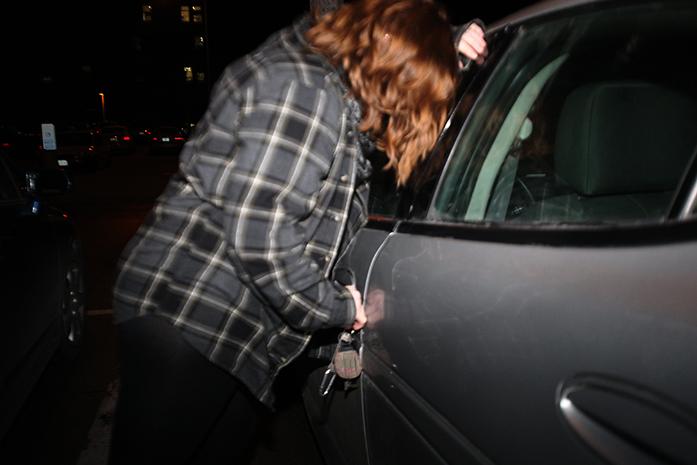Passing on a taxi after a night of drinking in Iowa City is more likely to result in an arrest than ever before.
OWI arrests have hit a 10-year peak in Iowa City. According to a recent statistic by the Iowa City police, 621 people were arrested in 2015 for “operating while intoxicated.” This is up from 569 drunk-driving arrests in 2014.
Rather than blaming booze, experts say the answer lies in increased officer training.
“As we get more officers trained on recognizing these signs, [we’re catching] people who five or 10 years ago might have slipped through the cracks,” said Jude Pannell, an assistant prosecutor in Johnson County.
This increased knowledge is an asset, Pannell said.
“Officers are able to find and observe more signs of intoxication than what they came out of the police academy recognizing,” he said.
Since 452 arrests for OWI in 2011, a steady rise in offenses has become visible. Police Officer Brad Reinhard, who is proficient in drug recognition, said this can be attributed to a program called Advanced Roadside Impairment Driving Enforcement.
It is part of a national program that started around seven years ago through the National Highway Traffic Safety Administration. Developed to improve road safety and drug recognition, Johnson County joined the push in 2012 after other departments in the state saw positive results.
Reinhard said he predicts the number of OWI arrests will begin to level off as more officers have been through the program and fewer need to attend.
Planned again for this March, the two-day training gives tips and hones prior skills on field sobriety tests and also teaches police about various drug categories and how they can affect drivers.
“There’s a point of saturation as to where you get in training,” Reinhard said. “Now, it is more the maintenance of officers in keeping their skills current.”
Jim Maisano, a deputy police chief in Norman, Oklahoma, and a veteran trainer of drug recognition, said he sees the national program training open the eyes of officers who take the course.
“It’s really good to see them react,” he said. “They’ll say, ‘I didn’t smell alcohol, but they were acting in a certain way,’ ” he said. “There’s often more to it than a DUI arrest.”
Maisano said 17,000 people die a year in the United States as a result of impaired driving. As opposed to more apparent tragedies receiving news coverage, he said intoxicated driving fatalities are preventable.
“Impaired drivers are an issue 24 hours a day. It’s not just a nighttime issue,” he said. “Officers are trained to look at symptoms and find more beyond the alcohol.”
The fines for misdemeanor OWI are currently $625 with a blood-alcohol content under .15 percent and fines reaching $1,250 excluding court fees for a higher content, Reinhard said.
However, he said, the jail filling up with drunk drivers is not a problem, as is sometimes discussed.
“The majority of people go in before 2 or 3 a.m., see the judge at 8 a.m., and are released by 10 a.m.,” he said. Reinhard also said that a weekend program is available to avoid further fines.
For years to come, Iowa City may see a steadier number of OWI charges, but Pannell said he hopes to see fewer unsafe drivers on the road.



